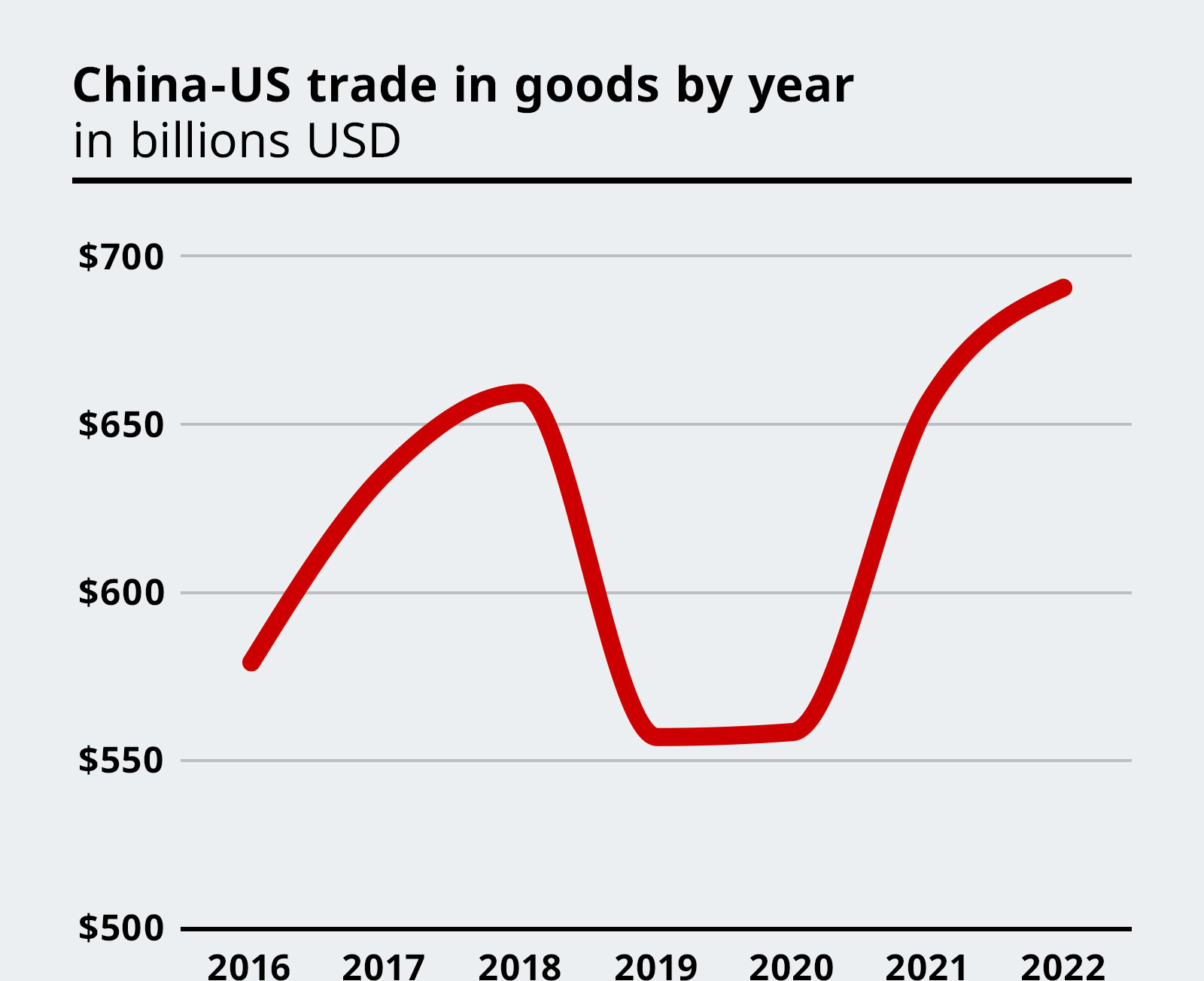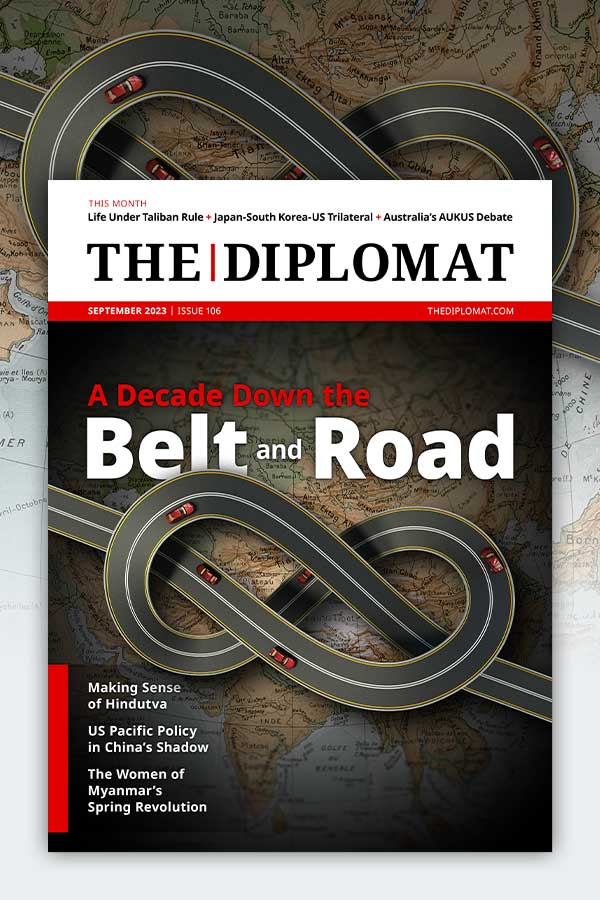| Welcome to the latest issue of Diplomat Brief. This week our top story investigates the private schools teaching a Hindutva curriculum to poor students – including non-Hindus – in India. We also have an interview with Gordon Conochie, a former journalist and long-time resident of Phnom Penh, about Cambodia’s autocratic turn under Hun Sen – and what to expect from Hun Manet’s reign. |
| Story of the week | ![[object Object]](https://thediplomat.com/diplomat-brief/2023/vol38/images/feature.jpg) | Diplomacy In India, Hindutva Schools Are Indoctrinating Poor ChildrenWhat Happened: Since its founding in 1986, the Ekal Vidyalaya Foundation has set up over 17,000 private schools in India’s Uttar Pradesh, purportedly to ensure that children in poor, rural areas have access to education. But the schools have another purpose as well: to propagate Hindu nationalism, which includes demeaning and hostile narratives about other religious groups. India’s own government has found that the purpose of the schools “was mainly to spread communal disharmony… and inculcate a fundamentalist political ideology.” Yet the schools are not only permitted to exist but have thrived – including through generous donations from the United States. Our Focus: Employees for Ekal schools are up-front about their goals. “Muslims and Christians need to be shown their rightful place in society; they can either accept Hindu supremacy or convert to Hinduism. Ekal prepares children to identify enemies of Hinduism at an early stage,” Mahender Yadav, the supervisor of Ekal schools in Sitapur district, told The Diplomat. A teacher similarly proclaimed that students “need to learn who the Adharmis (unrighteous) are and only Hinduism can teach us that. Those who are not Hindus are Adharmis.” That sort of teaching is particularly problematic when students are non-Hindus. In one district, Muslim students admitted they had no choice but to attend the school, despite being forced to learn Hindu prayers: “This school is free, our parents send us here to learn whatever little we can.” What Comes Next: The Ekal schools are one part in a larger web of radical Hindu nationalism spreading across India. Some students go on to join paramilitary groups promoting Hindutva – groups that have been responsible for lynching, beating, and burning the homes of Muslims. While the schools may be free for individual families, they come at a steep cost for society: deepening communal divisions and further marginalizing hundreds of millions of non-Hindu Indians. Read this story |
| Behind the News | INTERVIEW Gordon ConochieGordon Conochie, a former journalist and author of “A Tiger Rules the Mountain: Cambodia’s Pursuit of Democracy,” on Hun Sen’s ability to consolidate control without attracting too much attention from the world: “As a U.N. official told me, when you compare Cambodia to other countries, there are serious problems but not as terrible as elsewhere. Hun Sen has judged it perfectly how to maintain control domestically without provoking international intervention.” Read the interview |
| This Week in Asia | Northeast Asia Leaders (But Not Xi) Gather in New York for UNGAThe U.N. General Assembly is holding its annual session this week in New York, U.S., and Northeast Asia will be well represented at the event. Japanese Prime Minister Kishida Fumio and South Korean President Yoon Suk-yeol are both attending, and they will look to advance their bilateral relationship – which has come a long way since an awkward first encounter on the sidelines of the 2022 UNGA. Meanwhile, China’s President Xi Jinping decided to skip the UNGA, sending VP Han Zheng in his stead – once again drawing attention to Xi’s sharply curtailed overseas travel, including his absence from the G-20 summit. Find out more | South Asia Canada Raises Possibility of Indian State Involvement in Sikh Activist’s MurderCanada has expelled an Indian diplomat as it investigates allegations that India’s government was involved in the assassination of a Sikh leader in Canada back in June. India denied the accusation, instead slamming Canada for providing shelter to “Khalistani extremists and terrorists.” Pro-independence Sikh activists in Canada have been a perennial thorn in Canada-India relations, but an April crisis in India centering on a massive, month-long manhunt for Sikh separatist leader Amripal Singh put concerns about unrest in Punjab back in the spotlight. Find out more | Southeast Asia ASEAN Holds Joint Military ExerciseThe Association of Southeast Asian Nations (ASEAN) is holding a five-day joint military exercise in Indonesian waters close to the Strait of Malacca, amid growing tensions in the nearby South China Sea. The ASEAN Solidarity Exercise, which runs until September 23, will involve all 10 ASEAN member states plus pending member Timor-Leste. The drills, which focus on non-combat exercises including maritime security, disaster response, and rescue operations, were initially scheduled to take place in the North Natuna Sea, where Indonesia’s exclusive economic zone overlaps with China’s expansive “nine-dash line” claim to the South China Sea. However, they were relocated in June amid reports that some ASEAN member states, particularly Cambodia, were concerned about the potential frictions with China. Find out more | Central Asia Central Asian Regionalism Moves ForwardIn March 2018, four of the five Central Asian presidents met in Astana, Kazakhstan – the first regional summit in nearly a decade. Since then, the heads of state of Central Asia have gathered nearly every year (with the exception of 2020), part of a wider process of regional integration. The 2023 edition, held in Dushanbe, Tajikistan, late last week, continued the trend of cautious progress: avoiding politically sensitive issues in favor of economic cooperation and downplaying institutionalization of the platform even while taking quiet steps to that end. Find out more |
| Visualizing APAC |  | Source: U.S. Census Bureau China-U.S. trade grew by 19 percent from 2016 to 2022, going from $578 billion to $690 billion – despite a trade war and a pandemic in the interim. See the full picture |
|  |

![[object Object]](https://thediplomat.com/diplomat-brief/2023/vol38/images/feature.jpg)

